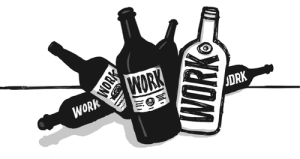Known unknowns: Are Poles workaholic or just very hard-working?
Are Polish people workaholics? Or do they just work very hard because they have to and stay cheerful through it all?
I ask the question in the light of a recent interesting story on Polish-Americans who work several jobs at a time. Click here to read the piece in OZY but if you don’t, here’s it’s key point:
“This cheerfully overworked Pole is no anomaly. In his country, the man has a lot of multiple-jobs-working company. In Poland, more than two million of its 38.4 million residents held two jobs at different companies in 2014. That’s 6.4 percent of the population, 50 per cent higher than the European Union average of 4 per cent. So is this a nation struggling to beat back poverty, or are we looking at a group of workaholics unrivaled outside Silicon Valley?”
It’s easy to see there’s a problem with the adjective used. Poles are not workaholics, they are hardworking.
The most accurate definition of workholic is as follows: a person who works compulsively. It seems that it was coined 51 years ago by a medical doctor, Richard I. Evans then employed as a consultant at the company now known as ExxonMobil.
In conversation with an editor working for a sector-specific periodical, they discussed the right way to deal with employees with a tendency to overwork. So much so that they became less productive. The doctors said it was like any other excessive behaviour, even alcoholism and as an aside, suggested such people be called ‘workaholic’.
The word was used off and on in the next few years but became really mainstream in the 1990s, perhaps as the result of the new self-help, self-awareness, self-healing mindset that took hold.
Anyway, the Poles are not workaholics, just hard-workers. Just another example of getting words and their meanings mixed up.



